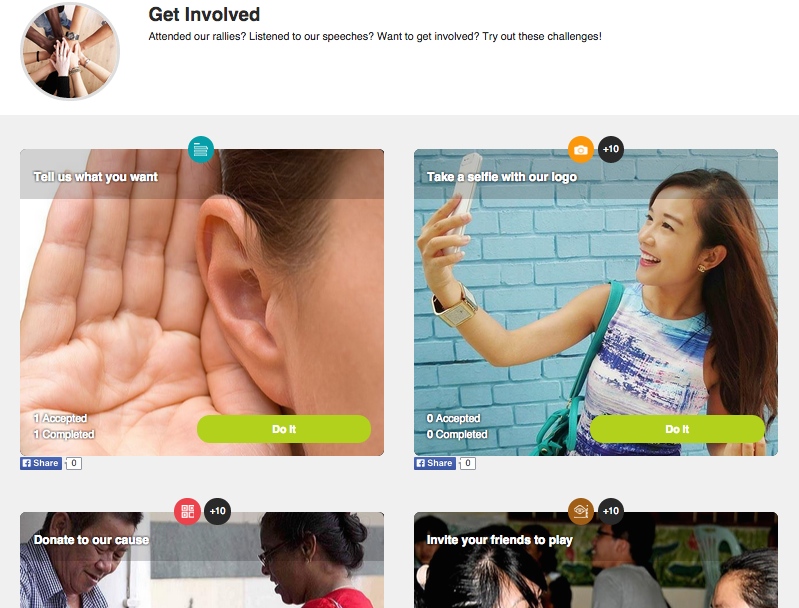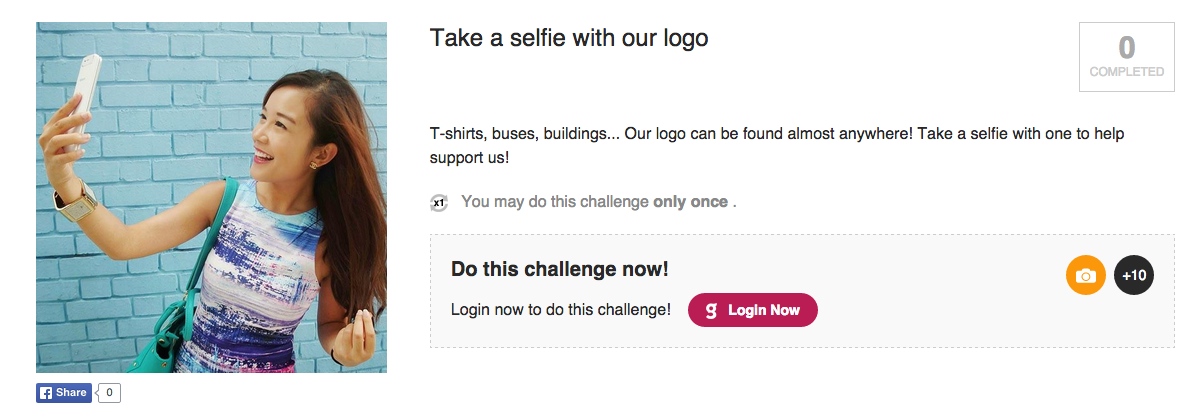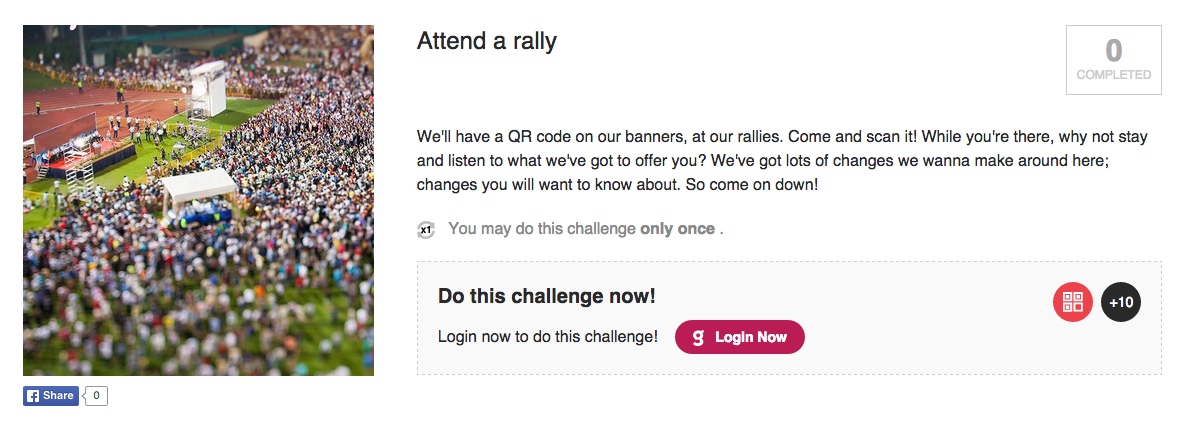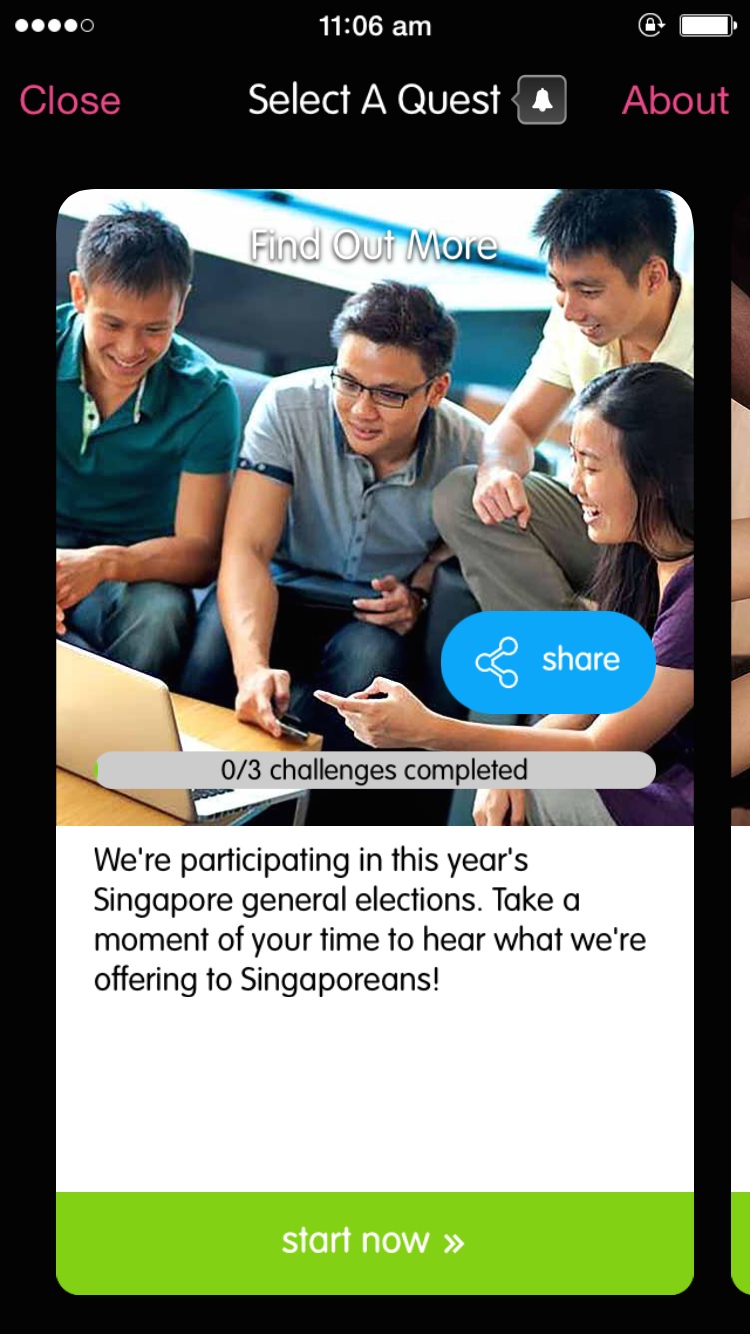Gamification – the concept of incorporating game-design elements into distribution channels or activities to drive engagement – has been adopted in recruitment, marketing, learning and development, and even HR practices. Politics is also no stranger to the concept, as gamification has been predominant for driving advocacy and engagement…but let us first begin with the basics.
What are game-design elements again?
Trying to top a leaderboard or accumulating sufficient points to redeem a reward? If you identify with either of these symptoms, then you’re already familiar with game-design elements! Achievements, rewards or a sense of belonging and camaraderie are a prevalent aspect in the traditional sense of gaming. Unlocking a new level in Angry Birds, redeeming a shopping voucher or joining a guild in World of Warcraft; participating in activities that offer intrinsic or extrinsic rewards and accomplishments may very well be the reason users stay engaged.
Characteristics of competition, rewards and redemption, or even a sense of belonging can increase engagement of your audience, depending on their motivations. Game-design elements resonate with our fundamental instincts to participate in activities with such characteristics.
Ok, back to the title of this article…
Now that we recognize game-design elements, let us examine it in politics. There is inherent competition in campaigning and rallying. There is belonging in throngs of like-minded supporters. Despite the change in context, the fundamentals remain the same. Politicians compete, they mobilize supporters, and they offer perks ranging from free tortillas to free wristbands.
From 2001 to 2012, Joe Simitian’s annual “There Oughta Be a Law” contest engaged citizens by encouraging them to propose new ideas that may be passed into law. Since then, there have been 18 proposed bills that were successfully passed into law. Gamifying the process by introducing the notion of competition into a contest, driving growth and involvement by putting up attractive rewards allowed for this concept to run well past a decade.
Growth of Gamification in Politics and its possibilities
So how has gamification evolved in politics, and how can it continue growing from here? The 2012 presidential elections in the U.S. saw the conventional form of online games: “iCivics” and “Election Special”. According to Hamari et al., 2014 in their research paper: “Does Gamification Work? – A Literature Review of Empirical Studies on Gamification”, the effects of gamification are subject to caveats that may impact desired outcomes, but the general observation is that gamification can bring about positive results. Coupled with Maslow’s hierarchy of needs to understand what motivates an audience, many processes in politics could be gamified to achieve larger objectives:
- Awareness and education of political issues: Imagine a repository of resources and information that voters can access to learn about a politician’s proposed policies and understand his vision. Now imagine that vast amount of information being developed into an interactive game in the form of bite-sized quests or trivia. Encouraging well-informed decisions through gamification of information dissemination could possibly become a motivation.
- Engagement of users and advocacy: For the audience that is motivated by extrinsic incentives, gamification could appear in the form of perks and rewards for completing challenges related to political understanding or support. Alternatively, free snacks at campaigns may quite possibly translate into higher attendances and in turn, better odds in a numbers game.
Perhaps even ideas that are slightly more out there such as looking to recruit and groom your “top players” into potential politicians could be accomplished through gamification. The possibilities are endless and the continued growth of gamification can only bring us more surprises for the future of politics.
We have witnessed a gamut of strategies in the Singapore General Elections (GE) 2015, and we think that gamification could have taken it further. The Gametize team decided to design a quick gamified demo to simulate how politicians can use gamification for their campaigns. Check it out at www.gametize.com/game/ge or search for “ge” on the Gametize app. Or, you can just see the screenshots below:

Several challenges available!

Selfie your support!

How about attending a rally?
 Mobile version!
Mobile version!
Also, in the name of fun, give our GE2015 Prediction Game a spin! Find it at www.gametize.com/game/gepredictions or on the Gametize app by searching “gepredictions”. May the luck be with you!
//Edited by Keith Ng.
This post was contributed by Wena Goh, Project Management @Gametize
Wena Goh has just joined Gametize; she seeks to entertain us with her dark (and sometimes ironic) humour. She’s got canine companions she loves dearly and when she’s off duty, you’ll find her either buried in books or enthusiastically farming her BKB (she’s not very good though).
